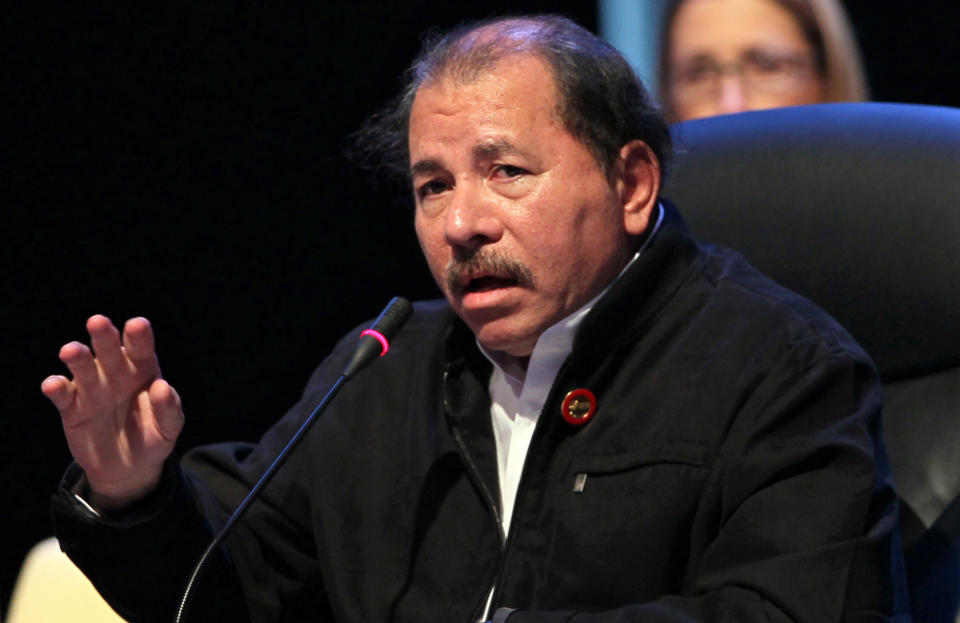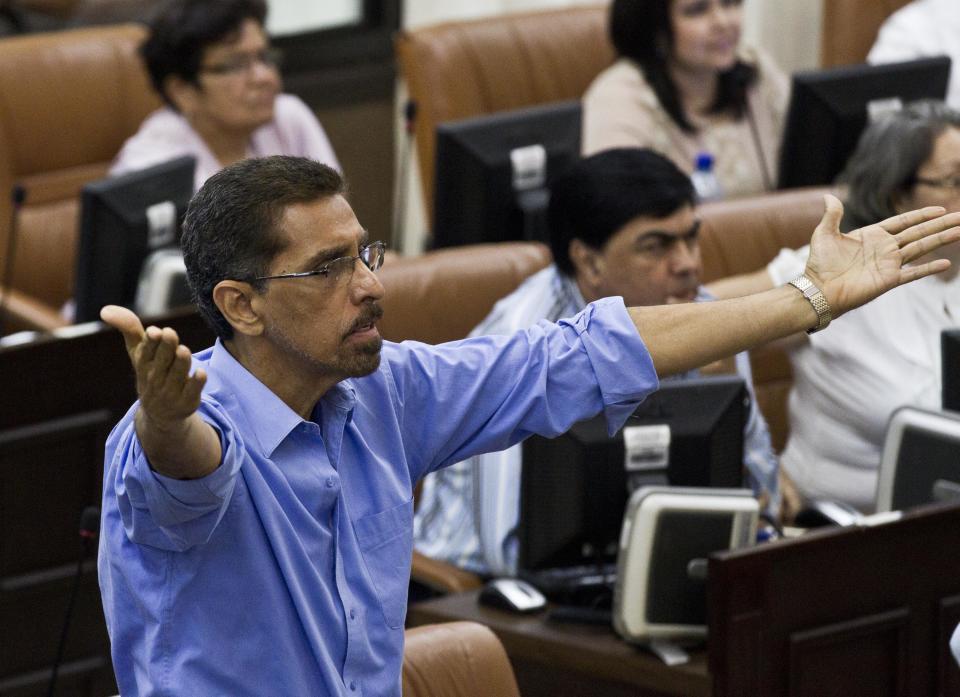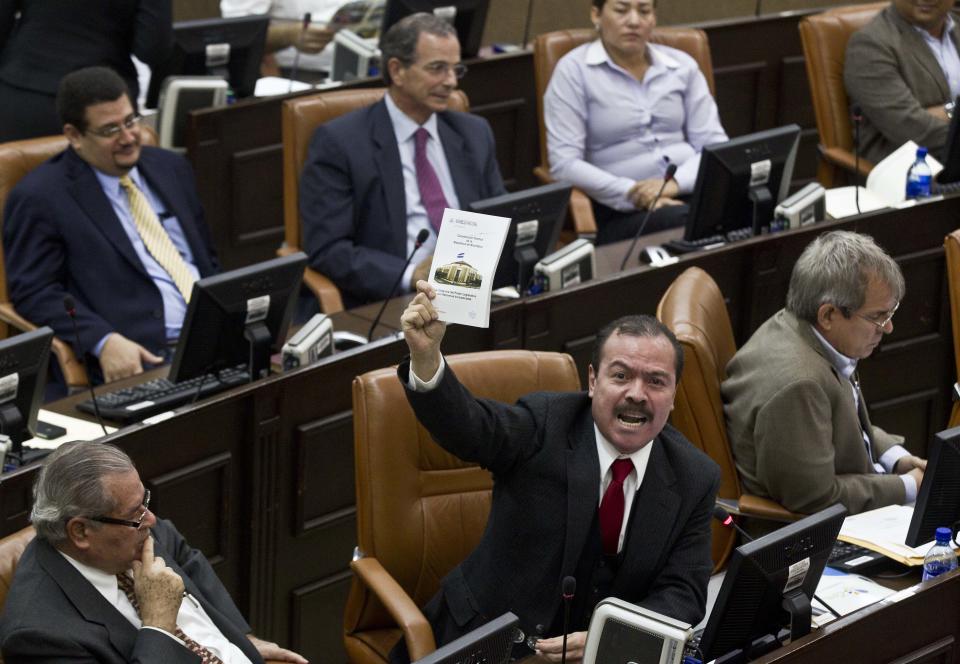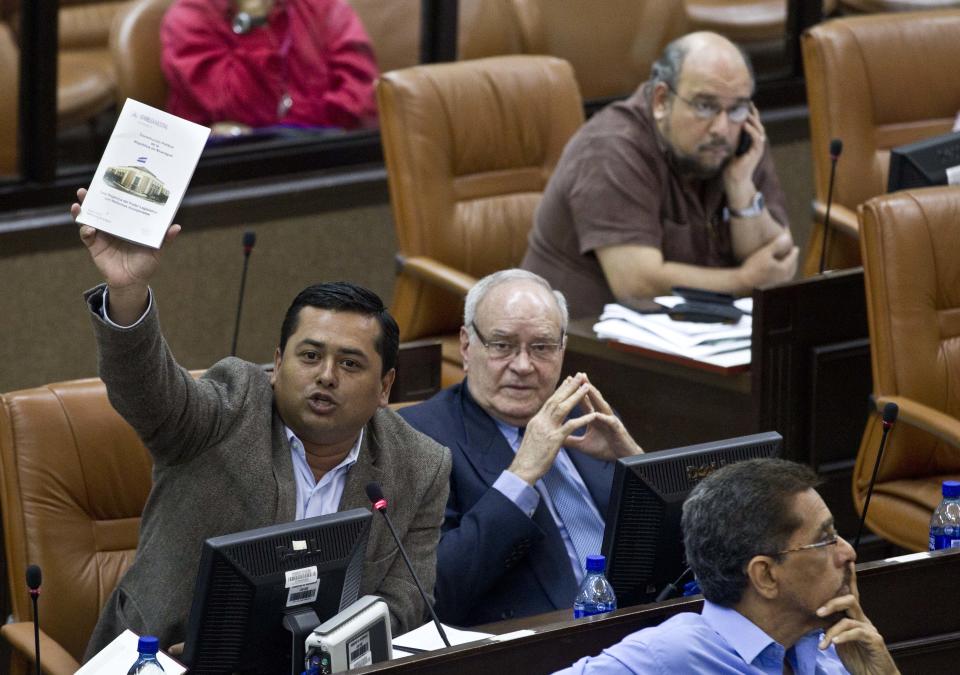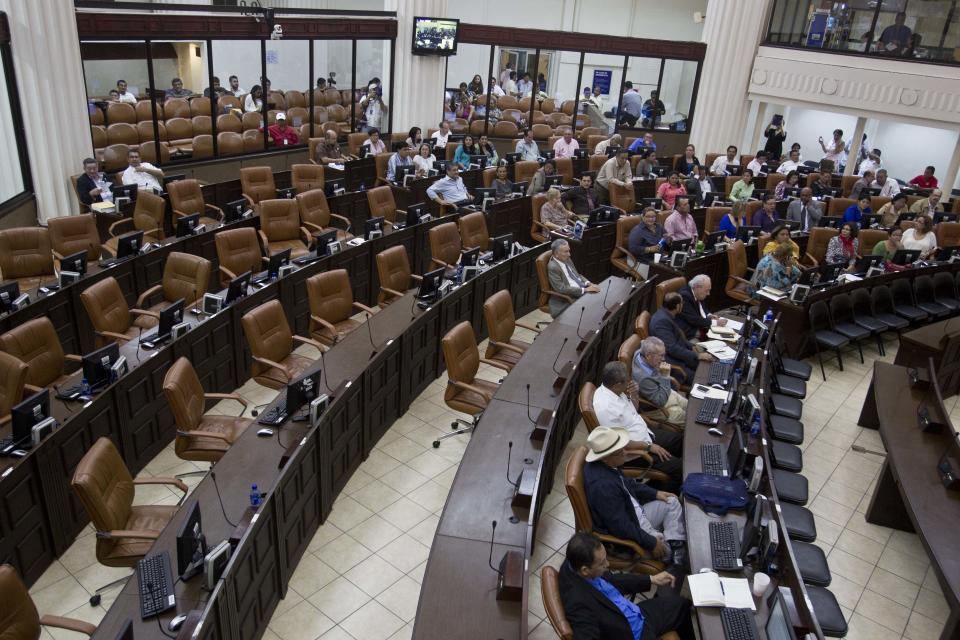Nicaragua's Sandinistas consolidate power further
MANAGUA, Nicaragua (AP) — Nicaragua's congress on Wednesday approved allowing the military chief of staff to hold his post indefinitely and letting the army take a bigger role in the economy, further concentrating power in the hands of longtime President Daniel Ortega and his allies.
Ortega helped lead the 1970s uprising against dictator Anastasio Somoza and served as president until losing an election in 1990. Since returning to the presidency in the 2006 election, he has engineered a series of legal changes allowing him to remain in power indefinitely, leading his opponents to warn of a return to dictatorship.
The vote on the military came a day after the congress controlled by Ortega's Sandinista party altered the constitution to erase presidential term limits and eliminate a requirement for a candidate to receive at least 35 percent of the vote in order to win presidential election. Both measures are widely seen as easing Ortega's path to a fourth term.
The constitutional change also gave the president the power to issue decrees without congressional approval. It also allows serving military and police officers to hold what had been civilian posts in government agencies and gives.
The change approved Wednesday allows the army to help draft laws governing the country's national records, computer databases and telecommunications spectrum.
"We're looking to advance the legal framework for national security," Sandinista congressman Edwin Castro told reporters.
The military legislation also gives the army the ability to provide security to private enterprises like the trans-ocean canal proposed by a Chinese businessman as a rival to the Panama Canal.
"What can be seen is Ortega's clear intention to manage the army according to his tastes and whims," opposition congressman Luis Callejas said. "It's about the armed forces submitting to Ortega's will."
Former Ortega ally Dora Maria Tellez, who is now a member of a dissident Sandinista movement, said this week's legal changes are "custom-tailored for Ortega, who wants to die in power."
Ortega won a third term in 2011 after the Supreme Court, which is dominated by his allies, annulled term limits. The election was called fraudulent by his opponents, and the U.S. and European Union criticized it for a lack of transparency.

